
[xyz-ihs snippet="NavigationLinksBlock-Common"]
Pilgrim's Chorus
by Richard Wagner
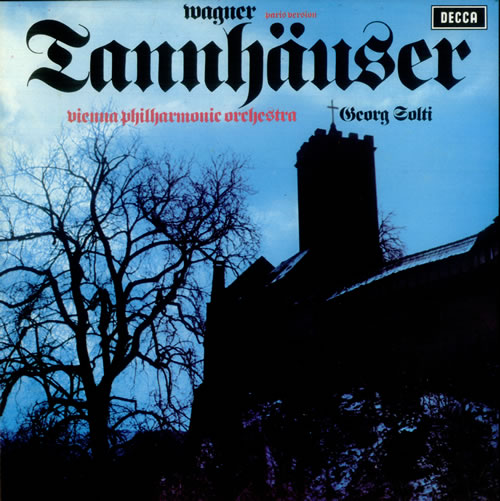
" Pilgrim's Chorus " is from the opera Tannhauser. Tannhäuser full title Tannhäuser und der Sängerkrieg auf Wartburg, "Tannhäuser and the Minnesingers' Contest at Wartburg" is an 1845 opera in three acts, with music and text by Richard Wagner (WWV 70 in the catalogue of the composer's works). It is based on two German legends: Tannhäuser, the mythologized medieval German Minnesänger and poet, and the tale of the Wartburg Song Contest. The story centers on the struggle between sacred and profane love, as well as redemption through love, a theme running through most of Wagner's work.
The opera remains a staple of major opera house repertoire in the 21st century.
[video width="640" height="360" mp4="https://www.easypianoonline.com/wp-content/uploads/2021/05/PilgrimsChorus.mp4"]
Lyrics
Pilgrim's Chorus
(English – Translation)
And gladly greet thy pleasant pastures;
Now, I lay my pilgrim's staff aside to rest,
For, faithful to God, I have completed my pilgrimage.
Through penance and repentance I have propitiated
The Lord, whom my heart serves,
Who crowns my repentance with blessing,
The Lord to whom my song goes up.
The Lord to whom my song goes up.
The salvation of pardon is granted the penitent,
He will one day walk in the peace of the blessed.
Hell and death do not appal him,
Therefore will I praise God my life long.
Hallelujah,
Hallelujah,
Eternally, eternally.
Chor der Pilger
(German – Original)
Beglückt darf nun dich, o Heimat, ich schauen,
Und grüßen froh deine lieblichen Auen;
Nun lass' ich ruhn den Wanderstab,
Weil Gott getreu ich gepilgert hab'.
Durch Sühn' und Buß' hab' ich versöhnt
Den Herren, dem mein Herze frönt,
Der meine Reu' mit Segen krönt,
Den Herren, dem mein Lied ertönt.
Den Herren, dem mein Lied ertönt.
Der Gnade Heil ist dem Büßer beschieden,
Er geht einst ein in der Seligen Frieden.
Vor Höll' und Tod ist ihm nicht bang,
Drum preis' ich Gott mein Lebelang.
Halleluja,
Halleluja,
In Ewigkeit, in Ewigkeit.
Songwriters: Richard Wagner

[xyz-ihs snippet="NavigationLinksBlock-Common"]
O For The Wings Of A Dove
by Felix Mendelssohn
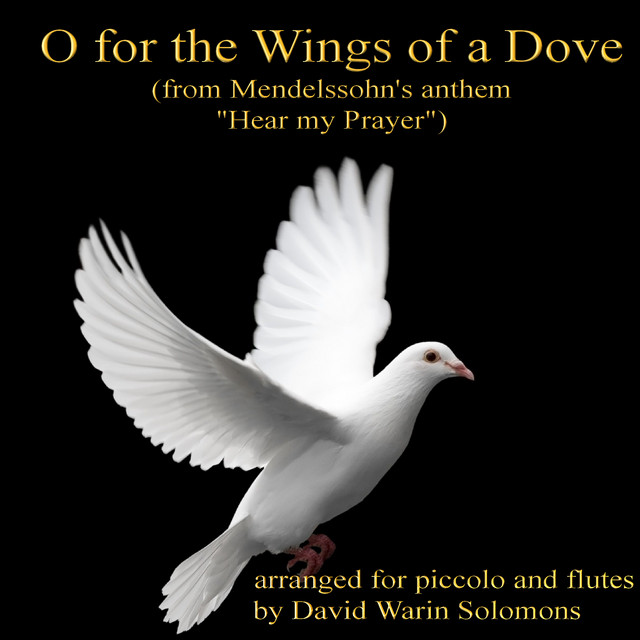
" O For The Wings Of A Dove " is a part of an anthem Hear My Prayer (German: Hör' mein Bitten) for soprano solo, chorus (SATB) and organ or orchestra composed by Felix Mendelssohn in Germany in 1844. The first performance took place in Crosby Hall, London, on 8 January 1845. The accompanist on that occasion was organist, composer and teacher Ann Mounsey (1811–1891). She later married the librettist of the work, William Bartholomew (1793–1867), who also collaborated with Mendelssohn on his oratorio Elijah (German: Elias). The anthem is particularly well known through the recording made in 1927 by treble Ernest Lough.
[video width="640" height="360" mp4="https://www.easypianoonline.com/wp-content/uploads/2021/05/OForTheWingsOfADove.mp4"]
Lyrics
O For The Wings Of A Dove
(English - Translation)
Far away, far away would I rove!
Oh, for the wings, for the wings of a dove,
Far away, far away, far away, far away would I rove!
In the wilderness build me a nest,
And remain there forever at rest
In the wilderness build me, build me a nest,
And remain there forever at rest
(German – Original)
O könnt' ich fliegen wie Tauben dahin,
weit hinweg vor dem Feinde zu flieh'n!
O könnt' ich fliegen wie Tauben dahin,
weit hinweg vor dem Feinde zu flieh'n!
in die Wüste eilt' ich dann fort,
fände Ruhe am schattigen Ort.
in die Wüste eilt' ich dann fort,
fände Ruhe am schattigen Ort.
Songwriters: Felix Mendelssohn / William Bartholomew

[xyz-ihs snippet="NavigationLinksBlock-Common"]
Nobody Does It Better
by Marvin Hamlisch

" Nobody Does It Better "is a power ballad composed by Marvin Hamlisch with lyrics by Carole Bayer Sager. It was recorded by Carly Simon as the theme song for the 1977 James Bond film The Spy Who Loved Me. It was the first Bond theme song to be titled differently from the name of the film since Dr. No, although the phrase "the spy who loved me" is included in the lyrics. The song was released as a single from the film's soundtrack album.
[video width="640" height="360" mp4="https://www.easypianoonline.com/wp-content/uploads/2021/05/NobodyDoesItBetter.mp4"]
Lyrics
Nobody Does It Better
Makes me feel sad for the rest
Nobody does it half as good as you
Baby, you're the best
I wasn't lookin' but somehow you found me
It tried to hide from your love light
But like heaven above me
The spy who loved me
Is keepin' all my secrets safe tonight
And nobody does it better
Though sometimes I wish someone could
Nobody does it quite the way you do
Why'd you have to be so good?
The way that you hold me
Whenever you hold me
There's some kind of magic inside you
That keeps me from runnin'
But just keep it comin'
How'd you learn to do the things you do?
Oh, and nobody does it better
Makes me feel sad for the rest
Nobody does it half as good as you
Baby, baby, darlin', you're the best
Baby you're the best
Darlin', you're the best
Baby you're the best
Oh, oh, oh...
Songwriters: Carole Sager / Marvin Hamlisch

[xyz-ihs snippet="NavigationLinksBlock-Common"]
Melody In F
(Easy Version)
by Anton Rubinstein
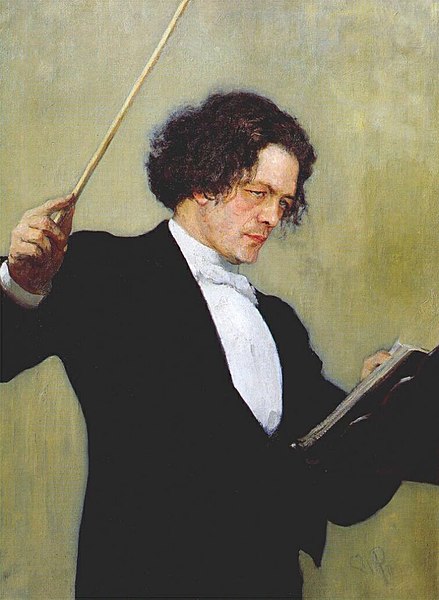
" Melody In F " (Opus. 3 No.1) was written by Anton Grigoryevich Rubinstein (16 November] 1829 – 20 November 1894). Rubinstein was a Russian pianist, composer and conductor who became a pivotal figure in Russian culture when he founded the Saint Petersburg Conservatory. He was the elder brother of Nikolai Rubinstein who founded the Moscow Conservatory.
As a pianist, Rubinstein ranks among the great 19th-century keyboard virtuosos. He became most famous for his series of historical recitals—seven enormous, consecutive concerts covering the history of piano music. Rubinstein played this series throughout Russia and Eastern Europe and in the United States when he toured there.
Although best remembered as a pianist and educator (most notably in the latter as the composition teacher of Tchaikovsky), Rubinstein was also a prolific composer throughout much of his life. He wrote 20 operas, the best known of which is The Demon. He composed many other works, including five piano concertos, six symphonies and many solo piano works along with a substantial output of works for chamber ensemble.
[video width="640" height="360" mp4="https://www.easypianoonline.com/wp-content/uploads/2021/05/MelodyInF-Easy.mp4"]

[xyz-ihs snippet="NavigationLinksBlock-Common"]
This Land Is Your Land
by Woody Guthrie
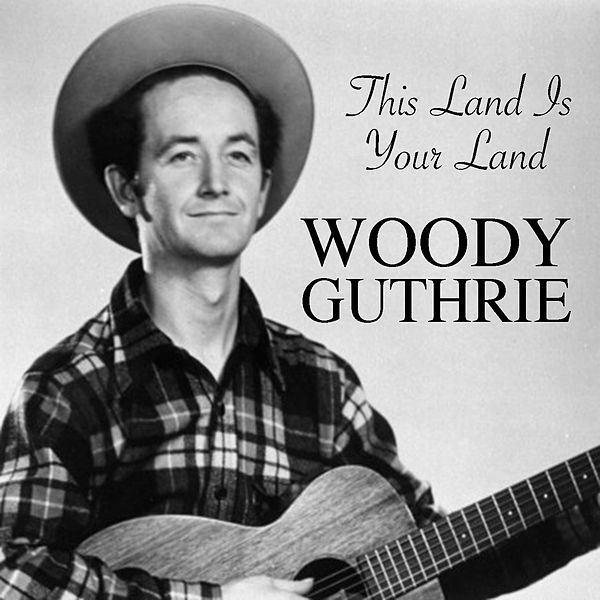
" This Land Is Your Land " is one of the United States' most famous folk songs. Its lyrics were written by American folk singer Woody Guthrie in 1940, based on an existing melody, a Carter Family tune called "When the World's on Fire", in critical response to Irving Berlin's "God Bless America". When Guthrie was tired of hearing Kate Smith sing "God Bless America" on the radio in the late 1930s, he sarcastically called his song "God Blessed America for Me" before renaming it "This Land Is Your Land".
[video width="640" height="360" mp4="https://www.easypianoonline.com/wp-content/uploads/2021/05/ThisLandIsYourland.mp4"]
Lyrics
This Land Is Your Land
From California to the New York island
From the redwood forest to the Gulf Stream waters
This land was made for you and me
As I went walking that ribbon of highway
I saw above me that endless skyway
Saw below me that golden valley
This land was made for you and me
I roamed and rambled and I've followed my footsteps
To the sparkling sands of her diamond deserts
All around me a voice was sounding
This land was made for you and me
When the sun come shining, then I was strolling
And the wheat fields waving and the dust clouds rolling
The voice was chanting as the fog was lifting
This land was made for you and me
This land is your land and this land is my land
From California to the New York island
From the redwood forest to the Gulf Stream waters
This land was made for you and me
When the sun come shining, then I was strolling
And the wheat fields waving and the dust clouds rolling
The voice come a-chanting and the fog was lifting
This land was made for you and me
Songwriters: Woody Guthrie

[xyz-ihs snippet="NavigationLinksBlock-Common"]
Papageno's Aria
(Ein Madchen Oder Weibchen)
by W.A. Mozart
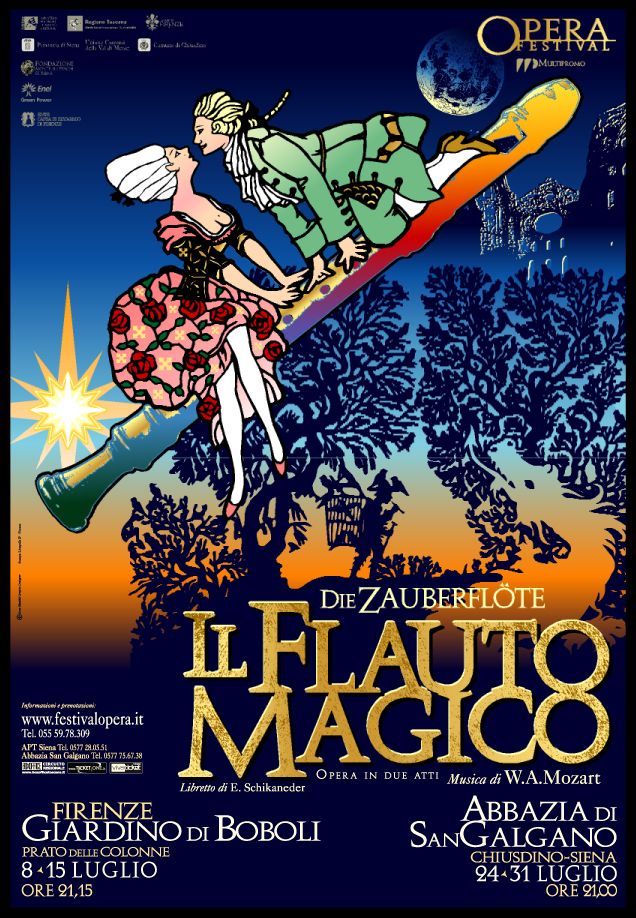
" Papageno's Aria (Ein Madchen Oder Weibchen) " is an aria from The Magic Flute (German: Die Zauberflöte), K. 620, an opera in two acts by Wolfgang Amadeus Mozart to a German libretto by Emanuel Schikaneder. The work is in the from of a Singspiel, a popular form during the time it was written that included both singing and spoken dialogue.The work premiered on 30 September 1791 at Schikaneder's theatre, the Freihaus-Theater auf der Wieden in Vienna, just two months before the composer's premature death.
[video width="640" height="360" mp4="https://www.easypianoonline.com/wp-content/uploads/2021/04/PapagenosAria.mp4"]
Lyrics
Papageno's Aria
(A girl or a little wife)
(English – Translation)
PAPAGENO:
A girl or a little wife
is what Papageno desires.
Oh, a sweet little dove like that
would be bliss for me!
Then I should drink and eat with relish,
then I could hold my own with princes,
enjoy life in my wisdom,
and be as if in Elysium.
A girl or a little wife
is what Papageno desires.
Oh, a sweet little dove like that
would be bliss for me!
Ah, can't I find one, then, amongst all
the lovely girls, who would like me?
Let just one help me out of my misery,
or I shall truly die of grief.
A girl or a little wife
is what Papageno desires.
Oh, a sweet little dove like that
would be bliss for me!
If no one will offer me love,
then the fire must consume me,
but if a woman's lips kiss me,
I shall be well again straightaway!
Papageno's Aria
(Ein Madchen Oder Weibchen)
(German - Original)
Ein Mädchen oder Weibchen
Wünscht Papageno sich!
O so ein sanftes Täubchen
Wär' Seligkeit für mich! -
Dann schmeckte mir Trinken und Essen;
Dann könnt' ich mit Fürsten mich messen,
Des Lebens als Weiser mich freu'n,
Und wie im Elysium seyn.
Ein Mädchen oder Weibchen
Wünscht Papageno sich!
O so ein sanftes Täubchen
War' Seeligkeit für mich! -
Ach kann ich denn keiner von allen
Den reitzenden Mädchen gefallen?
Helf' eine mir nur aus der Noth,
Sonst gräm' ich mich wahrlich zu Tod'.
Ein Mädchen oder Weibchen,
Wünscht Papageno sich!
O so ein sanftes Täubchen
Wär' Seligkeit für mich.
Wird keine mir Liebe gewähren,
So muss mich die Flamme verzehren!
Doch küsst mich ein weiblicher Mund,
So bin ich schon wieder gesund.
Songwriters: Wolfgang Amadeus Mozart

[xyz-ihs snippet="NavigationLinksBlock-Common"]
Jurassic Park
by John Williams

" Jurassic Park " main theme soundtrack is from the original film Jurassic Park. A 1993 American science fiction action film directed by Steven Spielberg and produced by Kathleen Kennedy and Gerald R. Molen. It is the first installment in the Jurassic Park franchise, and the first film in the Jurassic Park trilogy, and is based on the 1990 novel of the same name by Michael Crichton and a screenplay written by Crichton and David Koepp. The film is set on the fictional island of Isla Nublar, located off Central America's Pacific Coast near Costa Rica. There, wealthy businessman John Hammond and a team of genetic scientists have created a wildlife park of de-extinct dinosaurs. When industrial sabotage leads to a catastrophic shutdown of the park's power facilities and security precautions, a small group of visitors and Hammond's grandchildren struggle to survive and escape the perilous island.
[video width="640" height="360" mp4="https://www.easypianoonline.com/wp-content/uploads/2021/04/JarassicPark.mp4"]

[xyz-ihs snippet="NavigationLinksBlock-Common"]
A Mozart Reincarnated
by Ennio Morricone
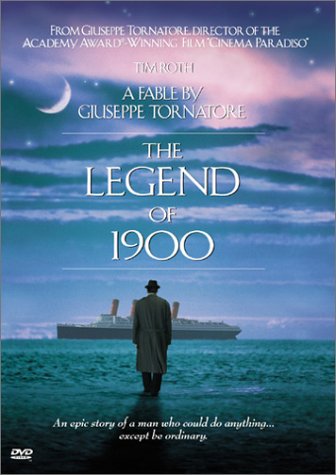
" A Mozart Reincarnated " is a soundtrack from the film The Legend Of 1900, with music written by Ennio Morricone. The Legend of 1900 is a 1998 Italian drama film directed by Giuseppe Tornatore and starring Tim Roth, Pruitt Taylor Vince and Mélanie Thierry. It was Tornatore's first English-language film. The film is inspired by Novecento, a monologue by Alessandro Baricco. The film was nominated for a variety of awards worldwide, winning several for its soundtrack.
[video width="640" height="360" mp4="https://www.easypianoonline.com/wp-content/uploads/2021/04/AMozartReincarnated.mp4"]

Playlist of Tutorials for Songs from The Magic Flute (List Ordered by Song Name) A B C D E F G H I J K…

[xyz-ihs snippet="NavigationLinksBlock-Common"]
The Young Prince
And The Young Princess
by Nikolai Rimsky-Korsakov
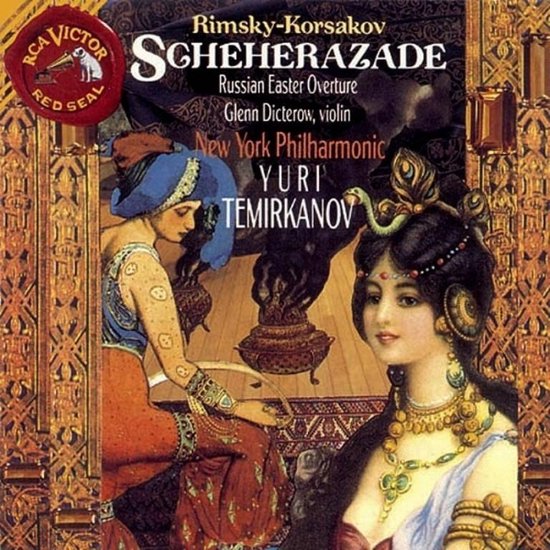
" The Young Prince And The Young Princess " is the third movement from Scheherazade. Sheherazade ,Op. 35, is a symphonic suite composed by Nikolai Rimsky-Korsakov in 1888 and based on One Thousand and One Nights (also known as The Arabian Nights). This orchestral work combines two features typical of Russian music in general and of Rimsky-Korsakov in particular: dazzling, colorful orchestration and an interest in the East, which figured greatly in the history of Imperial Russia, as well as orientalism in general. The name "Scheherazade" refers to the main character Scheherazade of the One Thousand and One Nights. It is considered Rimsky-Korsakov's most popular work.
[video width="640" height="360" mp4="https://www.easypianoonline.com/wp-content/uploads/2021/04/TheYoungPrinceAndYoungPrincess.mp4"]

[xyz-ihs snippet="NavigationLinksBlock-Common"]
Siciliana
Flute Sonata BWV 1031
by J.S. Bach
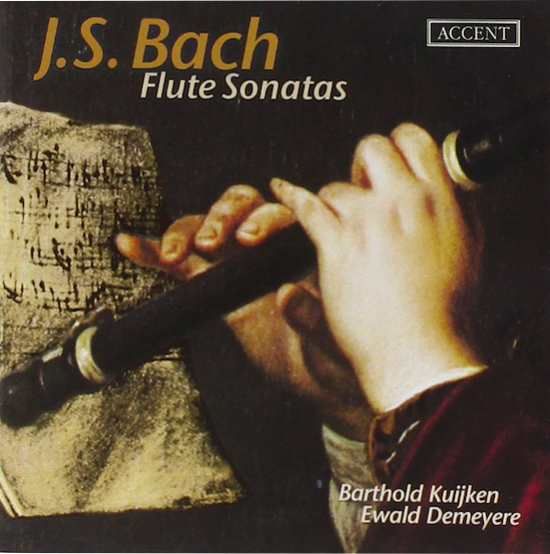
" Siciliana " From Sonata in E♭ major for flute or recorder and harpsichord BWV 1031, probably by J.S. Bach is a sonata in 3 movements. The Siciliana (in G Minor) is the second movement. The Bach scholar Robert Marshall has argued that the sonata was composed by J. S. Bach, since it was attributed to him by two independent sources, Bach's son Carl Philipp Emanuel Bach in the manuscript copy of the work in his handwriting, and Christian Friedrich Penzel, Bach's last pupil. The musicologist Jeanne Swack has suggested alternatively that BWV 1031 was "modelled" on a previous work for flute in E-flat by Johann Joachim Quantz (QV2:18 in the Augsbach catalog), which survives in a version for flute and obbligato harpsichord and in another version for flute, violin, and continuo.
[video width="640" height="360" mp4="https://www.easypianoonline.com/wp-content/uploads/2021/04/Siciliana.mp4"]

[xyz-ihs snippet="NavigationLinksBlock-Common"]
Fur Elise
(Section C)
by Ludwig van Beethoven
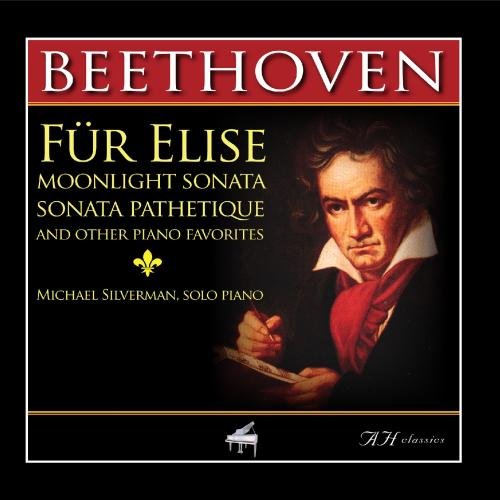
Section A of the tutorial can be reached at the link below:
Section B of the tutorial can be reached at the link below:

" Fur Elise " is one of Ludwig van Beethoven's most popular compositions, and one of the most famous piano pieces of all time. It was not published during his lifetime, only being discovered (by Ludwig Nohl) 40 years after his death, and may be termed either a Bagatelle or an Albumblatt. The identity of "Elise" is unknown; researchers have suggested Therese Malfatti, Elisabeth Röckel, or Elise Barensfeld.
[video width="640" height="360" mp4="https://www.easypianoonline.com/wp-content/uploads/2021/04/FurEliseSectionC.mp4"]

[xyz-ihs snippet="NavigationLinksBlock-Common"]
Flower Duet
by Leo Delibes
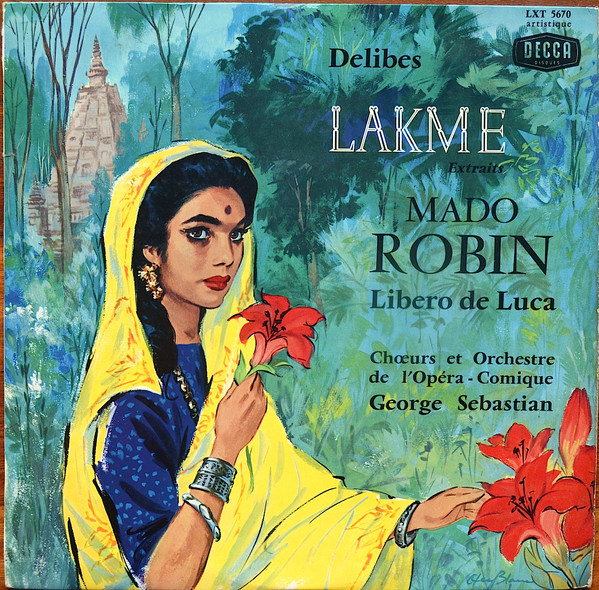
" Flower Duet " (French: Duo des fleurs / Sous le dôme épais) is a duet for soprano and mezzo-soprano in the first act of Léo Delibes' opera Lakmé, premiered in Paris in 1883. It is sung by the characters Lakmé, daughter of a Brahmin priest, and her servant Mallika, as they go to gather flowers by a river.
The duet is frequently used in advertisements and films and is popular as a concert piece. It was adapted for the track "Aria" in the British Airways "face" advertisements of the 1980s by Yanni and Malcolm McLaren. More recently, it has been heard in films such as Meet the Parents and True Romance and television shows including The Simpsons.
[video width="640" height="360" mp4="https://www.easypianoonline.com/wp-content/uploads/2021/04/FlowerDuet.mp4"]
Lyrics
Flower Duet
(English - Translation)
With the roses entwined together
On a river bank covered with flowers laughing in the morning
Gently floating on it's charming risings
On the river's current
On the shining waves
One hand reaches
Reaches for the bank
Where the spring sleeps and
The birds, the birds sing.
Under a dome of white jasmine
Ah! calling us
Together!
Under a dome of white jasmine
With the roses entwined together
On a river bank covered with flowers laughing in the morning
Let us descend together
Gently floating on it's charming risings,
On the river's current
On the shining waves,
One hand reaches,
Reaches for the bank,
Where the spring sleeps,
And the birds, the birds sing.
Under a dome of white jasmine
Ah! calling us
Together!
Duo des Fleurs
(French – Original)
Sous le dôme épais où le blanc jasmin
A la rose s'assemble
Sur la rive en fleurs riant au matin
Doucement glissons De son flot charmant
Suivons le courant fuyant
Dans l'onde frémissante
D'une main nonchalante
Viens, gagnons le bord,
Où la source dort et
L'oiseau, l'oiseau chante.
Sous le dôme épais ou le blanc jasmin,
Ah! descendons
Ensemble!
Sous le dôme épais où le blanc jasmin
A la rose s'assemble
Sur la rive en fleurs riant au matin
Viens, descendons ensemble
Doucement glissons de son flot charmant,
Suivons le courant fuyant
Dans l'onde frémissante
D'une main nonchalante
Viens, gagnons le bord
Où la source dort et
L'oiseau, l'oiseau chante
Sous le dôme épais ou le blanc jasmin,
Ah! descendons
Ensemble!
Songwriters: Leo Delibes

[xyz-ihs snippet="NavigationLinksBlock-Common"]
Clocks
by Coldplay

" Clocks " is a song by British rock band Coldplay. It was written and composed as a collaboration among all the members of the band for their second album, A Rush of Blood to the Head. Built around a piano riff, the song features cryptic lyrics concerning themes of contrast and urgency. Several remixes of the track exist, and its riff has been widely sampled. Considered to be one of Coldplay's signature songs, "Clocks" continues to garner critical acclaim and is often placed on lists ranking the greatest songs of the 2000s and of all time, including being ranked 490th on Rolling Stone's "500 Greatest Songs of All Time" list in 2010.
[video width="640" height="360" mp4="https://www.easypianoonline.com/wp-content/uploads/2021/04/Clocks.mp4"]
Lyrics
Clocks
Tides that I tried to swim against
Have brought me down upon my knees
Oh, I beg, I beg and plead
Singin' come out of things un said
Shoot an apple off my head
And a trouble that can't be named
A tiger's waiting to be tamed, singin'
You are
You are
Confusion that never stops
Closing walls and ticking clocks
Gonna come back and take you home
I could not stop that you now know
Singin' come out upon my seas
Cursed missed opportunities
Am I a part of the cure
Or am I part of the disease? Singin'
You are
You are
You are
You are
You are
You are
And nothing else compares
Oh, no, nothing else compares
And nothing else compares
You are
You are
Home, home, where I wanted to go
Home, home, where I wanted to go
Home, home, where I wanted to go
Home, home, where I wanted to go
Songwriters: Guy Rupert Berryman / Jonathan Mark Buckland / William Champion / Christopher Anthony / John Martin

[xyz-ihs snippet="NavigationLinksBlock-Common"]
Can't Help Falling In Love
by Elvis Presley
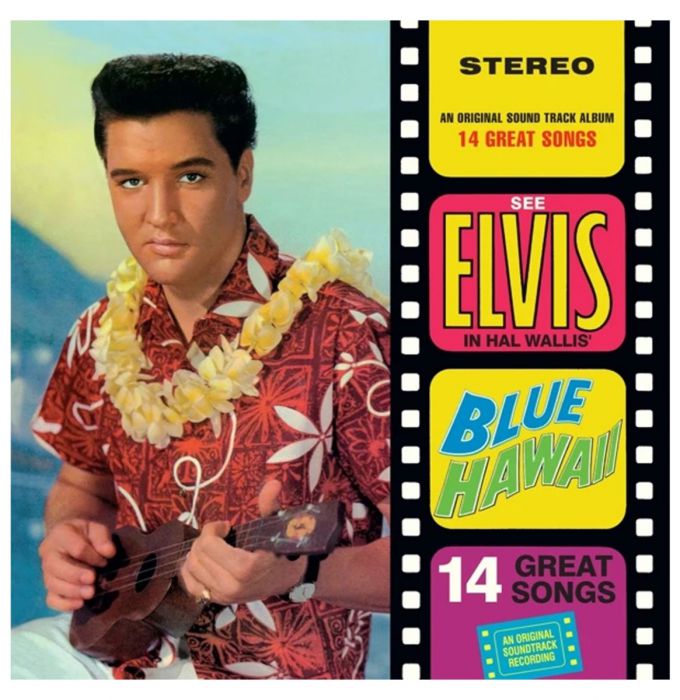
" Can't Help Falling In Love "is a song recorded by American singer Elvis Presley for the album Blue Hawaii (1961). It was written by Hugo Peretti, Luigi Creatore, and George David Weiss and published by Gladys Music, Inc. The melody is based on "Plaisir d'amour", a popular French love song composed in 1784 by Jean-Paul-Égide Martini. The song was initially written for a woman as "Can't Help Falling in Love with Him", which explains the first and third line ending on "in" and "sin" rather than words rhyming with "you".
"Can't Help Falling in Love" was featured in Presley's 1961 film Blue Hawaii. During the following four decades, it has been recorded by numerous other artists, including Bob Dylan on his 1973 album Dylan, Tom Smothers, Swedish pop group A-Teens, and the British reggae group UB40, whose 1993 version topped the U.S. and UK charts.
[video width="640" height="360" mp4="https://www.easypianoonline.com/wp-content/uploads/2021/04/CantHelpFallingInLove.mp4"]
Lyrics
Can't Help Falling In Love
Only fools rush in
But I can't help falling in love with you
Shall I stay?
Would it be a sin
If I can't help falling in love with you?
Like a river flows
Surely to the sea
Darling, so it goes
Some things are meant to be
Take my hand
Take my whole life too
For I can't help falling in love with you
Like a river flows
Surely to the sea
Darling, so it goes
Some things are meant to be
Take my hand
Take my whole life too
For I can't help falling in love with you
For I can't help falling in love with you
Songwriters: George Weiss / Hugo Peretti / Luigi Creatore








































